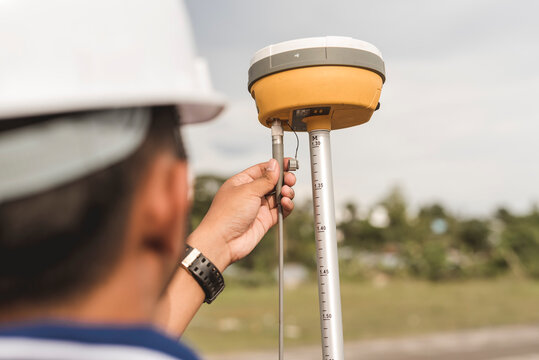Choosing the right Global Navigation Satellite System (GNSS) tools for surveying in the UAE is crucial for ensuring accurate and efficient data collection. Here are some key factors to consider:

1. Accuracy Requirements
- High-End GNSS Receivers: For projects requiring centimeter-level accuracy, such as construction and infrastructure development, opt for high-end GNSS receivers equipped with Real-Time Kinematic (RTK) technology.
- Mid-Range GNSS Receivers: For applications needing sub-meter accuracy, mid-range receivers are suitable and more cost-effective.
2. Antenna Selection
- Patch Antennas: Ideal for general surveying tasks and environments with minimal obstructions.
- Choke Ring Antennas: Best for areas with significant tree cover or urban settings, as they reduce multipath errors.
- Helix Antennas: Suitable for dynamic surveying tasks and environments with moderate obstructions.
3. Environmental Considerations
- Clear Sky Visibility: Ensure the survey site has an unobstructed view of the sky to maximize satellite signal reception.
- Terrain and Obstructions: Account for terrain features and potential obstructions like buildings and trees that can affect signal quality.
4. Surveying Techniques
- Static Surveying: Involves placing the GNSS receiver at a fixed location for a period to obtain highly accurate measurements.
- Real-Time Kinematic (RTK) Surveying: Uses a base station and a rover to provide real-time, centimeter-level accuracy.
- Post-Processing: Utilize software such as Trimble Business Center or Leica Geo Office to process data and achieve precise measurements.
5. Compatibility and Connectivity
- Data Integration: Ensure the GNSS tools are compatible with existing software and hardware used in your surveying workflow.
- Connectivity Options: Look for receivers with multiple connectivity options such as Wi-Fi, Bluetooth, and 4G to facilitate data transfer and real-time updates.
6. Durability and Reliability
- Build Quality: Choose GNSS tools from reputable manufacturers known for their durability and reliability.
- Battery Life: Consider the battery life of the equipment, especially for fieldwork in remote areas.
7. Cost and Budget
- Cost-Benefit Analysis: Evaluate the cost of the GNSS tools against the accuracy and features they offer. Balance your budget with the project’s requirements.
- Warranty and Support: Check for warranty options and after-sales support to ensure long-term reliability and assistance.
By carefully considering these factors, surveyor companies in the UAE can select the right GNSS tools to meet their specific needs and ensure successful surveying projects.
